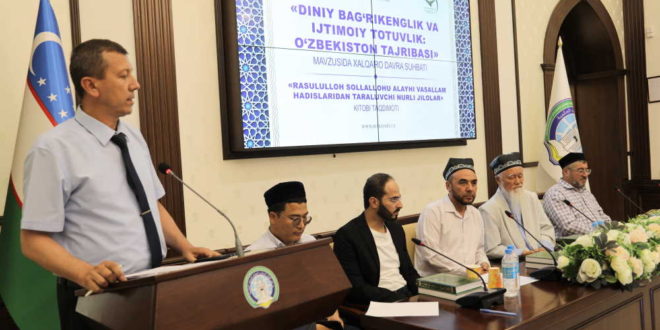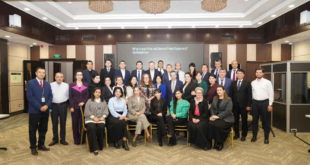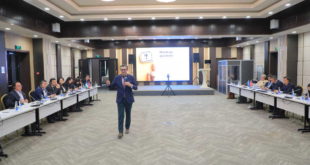An international roundtable discussion on the theme “Religious Tolerance and Social Harmony: The Experience of Uzbekistan” was held at the Imam Bukhari International Scientific Research Center. The event brought together the Center’s staff, representatives from the religious and public sectors, as well as historians from Kuwait.
The forum featured an in-depth discussion on the reforms being carried out in Uzbekistan to ensure freedom of conscience and to strengthen mutual respect and harmony among representatives of various religions and ethnicities.
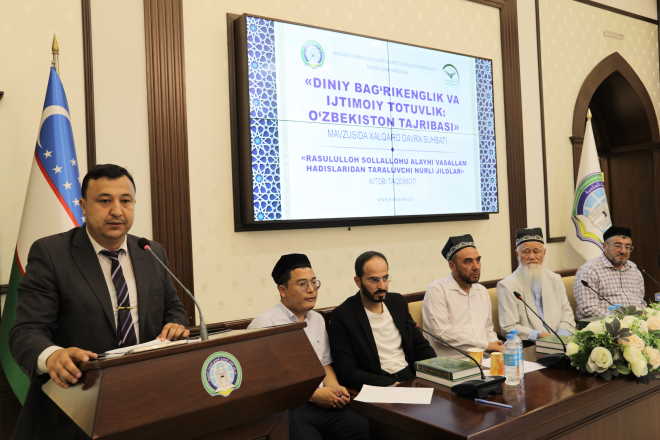
Bayozkhon Makhmudov, a researcher at the Center, spoke about the essence of the Presidential Decree of the Republic of Uzbekistan “On Measures to Further Strengthen Guarantees of Citizens’ Freedom of Conscience and to Bring Reforms in the Religious and Educational Sphere to a New Stage.”
In accordance with this decree, comprehensive measures are being implemented in the country to promote religious tolerance, build an enlightened society based on religious knowledge, and widely promote the true essence of Islam as a religion of peace and humanity. In particular, cooperation between the state and religious institutions is being strengthened, and special attention is being paid to legally supporting the activities of religious organizations.
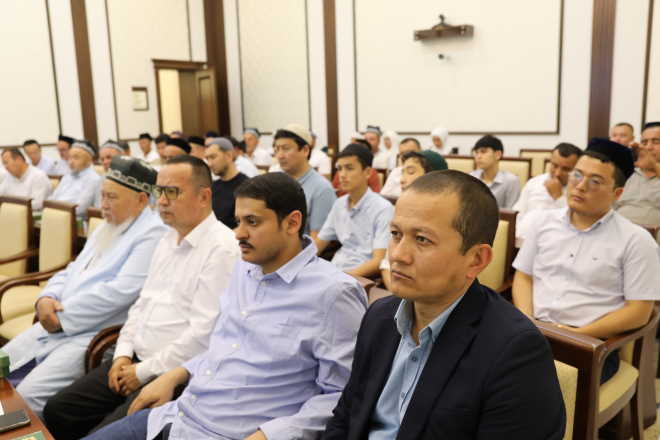
As noted during the event, freedom of conscience in Uzbekistan is not only guaranteed by law but is also effectively upheld in practice – something that has been recognized at the international level. For instance, the activities of institutions such as the Imam Bukhari International Scientific Research Center, their expanding international partnerships, and their efforts to present knowledge about Islamic civilization on a scientific basis, are clear indicators of progress in this area.
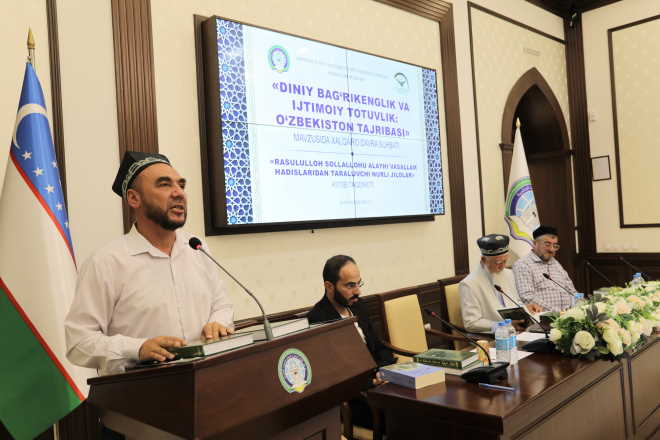
As part of the event, renowned scholar Iskandar Khalilov presented his two-volume work entitled “Radiant Reflections from the Hadiths of the Messenger of Allah (peace be upon him).” The author provided detailed information about the compilation and preparation process of the work, the scholarly foundations of its sources, and the stylistic choices made during the editing of the texts.
The book contains 3,550 hadiths related to ethics and spirituality, selected from the six authentic hadith collections. These hadiths are systematically arranged across two volumes, categorized by topic, and include thorough explanations of complex expressions.
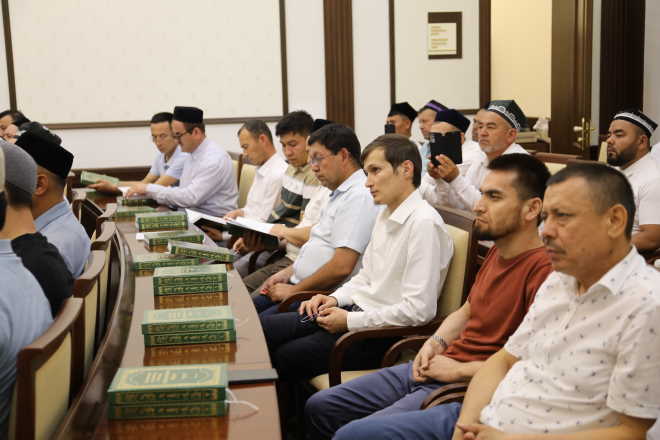
Through this work, the author aimed not only to present the texts of the hadiths but also to shed light on their educational and spiritual meanings, as well as their role in human development. The book is considered a valuable source for religious educational institutions, scholars, and the broader public.
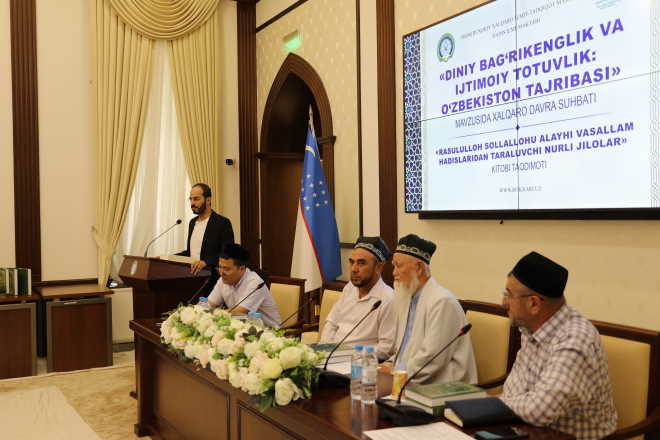
Nadir Vasir, a member of the Kuwaiti Writers’ Association and a historian, praised the reforms being implemented in Uzbekistan to promote religious tolerance and elevate spiritual life. He particularly emphasized that the Center is gaining considerable recognition not only in the region but also throughout the Islamic world for its active role in promoting knowledge and enlightenment.
He also expressed his intention to recommend Iskandar Khalilov’s work “Radiant Reflections from the Hadiths of the Messenger of Allah (peace be upon him)” as an important resource for scholarly and literary circles in Kuwait. According to him, such works play a vital role in fostering mutual understanding among different societies and strengthening spiritual ties by promoting Islamic teachings and moral values.
The Kuwaiti writer also introduced participants to his book “The Land of Mawarannahr: Conquests and Invasions” based on his historical research.
He noted that through this work, he aims to contribute to a deeper and more objective understanding of the rich scientific and cultural heritage of Central Asia, particularly Uzbekistan, within the international community. It was also mentioned that the book had been awarded a prize by the State of Qatar in the field of history and heritage.
— “What distinguishes Mawarannahr the most,” said Nadir Vasir, “is not just the dozens, but perhaps hundreds or even thousands of great scholars who emerged from this land. Studying their rich intellectual and spiritual legacy in depth and promoting it on an international scale is a vital task for all Muslim societies.”
In conclusion, participants emphasized that Uzbekistan’s experience serves as an exemplary model for ensuring religious tolerance and social harmony. They stressed the need to study and implement this scientific and practical experience on an international level. Books presented during the event are seen as essential contributions to enhancing religious and educational knowledge, enriching spiritual upbringing and strengthening cultural and educational ties between nations.
 Imom Buxoriy xalqaro ilmiy-tadqiqot markazi bukhari.uz
Imom Buxoriy xalqaro ilmiy-tadqiqot markazi bukhari.uz
